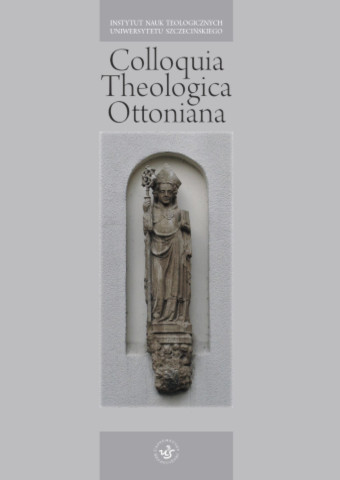
ISSN: 1731-0555
eISSN: 2353-2998
OAI
DOI: 10.18276/cto.2018.2-10




Issue archive /
2/2018
Prymas polski Kardynał Józef Glemp w materiałach archiwum Instytutu Pamieci Narodowej
(Cardinal Józef Glemp, the primate of Poland, in the archival materials of the Institute of National Remembrance)
| Authors: | Zbigniew Stanuch |
| Keywords: | Cardinal Józef Glemp Primate of Poland Security Service West Pomerania record sheets |
| Data publikacji całości: | 2018 |
| Page range: | 12 (183-194) |
Abstract
Cardinal Józef Glemp became the object of interest of Security Service even he took the office of the Primate of Poland. The archival documents preserved to our times and stored in the archives of the Institute of National Remembrance show that Reverend Glemp was under surveillance and encouraged to cooperate with Security Service. For Security Service, his person was important because of his direct access to Cardinal Wyszyński. Having a secret collaborator in the immediate environment of the then Primate of Poland would be an undoubted success of the special services of the People’s Republic of Poland. However, the intentions of the Security Service officers had failed to nothing due to the inflexible attitude of the future primate. Reverend Glemp remained a faithful sone of the Catholic Church and a loyal associate of Cardinal Wyszyński. For this reason, his attitude deserves respect. This paper discusses the documents stored at the Institute of National Remembrance that illustrate, among other things, unsuccessful attempts to enlist Reverend Glemp for collaboration with Security Service and show in a general outline his visits in Western Pomerania. When writing about the archival documents, the author of this text has in mind not only different types of reports and statements but also record sheets being an important part of the Institute of National Remembrance’s archive. Examples of the scans of these record sheets are also attached to the presented paper.
Download file
Article file
Bibliography
| 1. | Archiwum IPN w Warszawiesygn. 0713/335, 1196/2, 1585/ 2894, 024/18, 1585/3675, 0713/314, IPN BU 0449/41, 02745/17, 0713/32, 1585/4678, 1585/4648, 024/3, 00191/70, 001043/189. |
| 2. | Archiwum IPN w Szczecinie0012/219/3, 00103/152/56, 0012/222/2, 0012/276, 0012/275/1, 0012/281. |
| 3. | Jan Paweł II w Szczecinie. Meldunki operacyjne Wojewódzkiego Urzędu Spraw Wewnętrznych z 1987 r., wybór i opracowanie: M. Semczyszyn, A. Sitkowska, Z. Stanuch, Warszawa–Szczecin 2008. |
| 4. | Komaniecka M., Dzienniki korespondencyjne, rejestracyjne, archiwalne i koordynacyjne jako źródło historyczne, w: Wokół teczek bezpieki. Zagadnienia metodologiczno-źródłoznawcze, red. F. Musiał, Kraków 2015. |
| 5. | Musiał F., Podręcznik bezpieki. Teoria pracy operacyjnej Służby Bezpieczeństwa w świetle wydawnictw resortowych Ministerstwa Spraw Wewnętrznych PRL (1970–1989), Kraków 2015. |
| 6. | Reczek R., Władze wobec Kościoła katolickiego w Polsce w latach 1944–1990. Materiały do dziejów Kościoła w zasobach Instytutu Pamięci Narodowej, w: PrzeszłośćKościoła w archiwach Pomorza Zachodniego, red. ks. T. Ceynowa, Koszalin 2014. |
| 7. | Zając E., Ślad pozostaje w aktach. Wybrane zagadnienia dotyczące funkcjonowania ewidencji operacyjnej w latach 1962–1989, w: Wokół teczek bezpieki. Zagadnieniametodologiczno-źródłoznawcze, red. F. Musiał, Kraków 2015. |